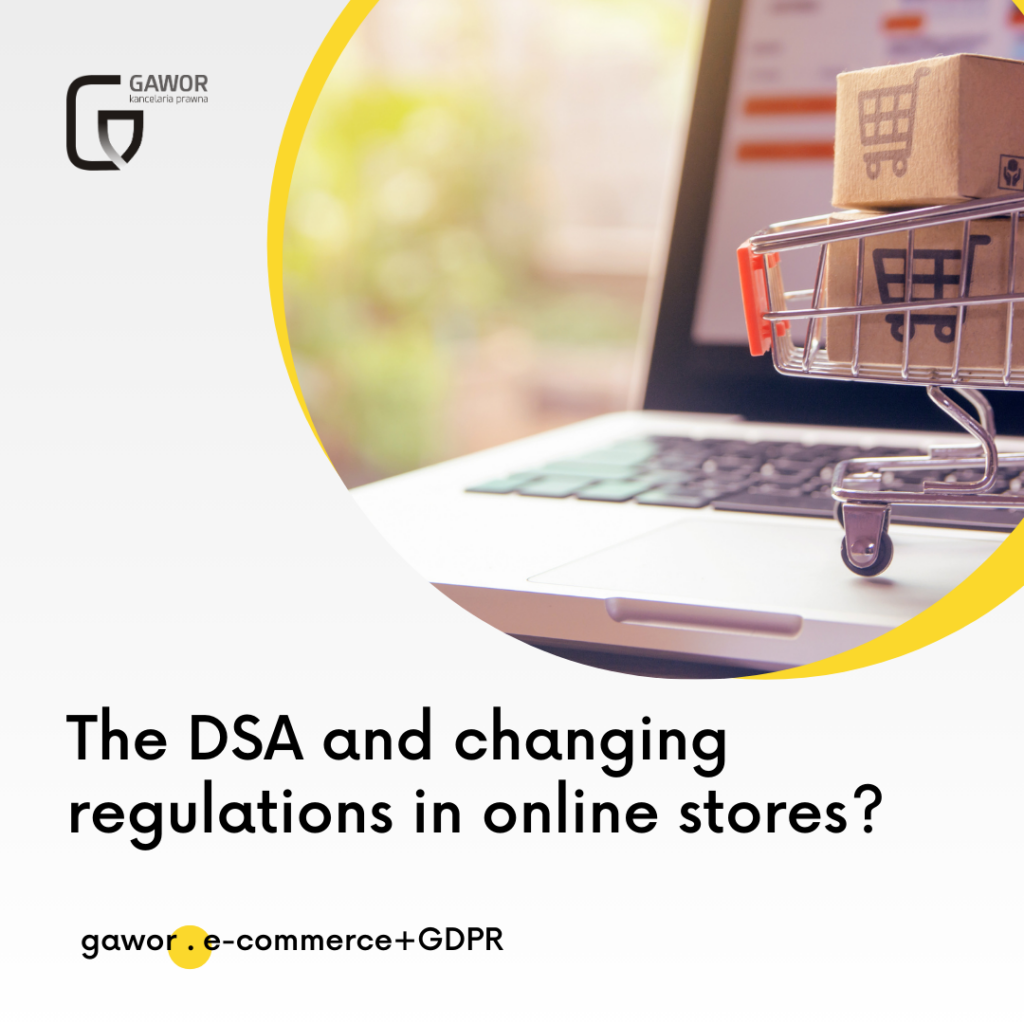
📍DSA and changing regulations in online stores?
On February 17, 2024, the DSA, i.e. the Digital Services Act, entered into force. This is an EU regulation that is directly applicable in all Member States. This act is called the Internet Constitution. In my opinion, this name is a bit grandiloquent, because some of the rules introduced by the DSA could already be derived from previously applicable regulations and good practices.
🌐Which online stores does this article apply to?
Note: in this article I will present the DSA only from the perspective of online stores, which are small companies (micro and small entrepreneurs) and hosting providers within the meaning of the DSA.
Therefore, the DSA applies to an online store if, within this store, customers have the opportunity to publish content on their own, e.g. by posting product reviews, comments or ratings. Therefore, if you allow your customers to leave reviews about products in your online store, you should update the online store’s regulations to include the DSA requirements.
Generally, the DSA fights against illegal content published on the Internet. Therefore, the owner of an online store is obliged to develop and implement a procedure for reporting and removing illegal content published by users in his online store.
⛔️What is illegal content?
📢Illegal content is – as you can easily guess – content that violates the law. Therefore, illegal content will include content that infringes copyright, personal rights, incites terrorism, is a manifestation of cyberstalking, etc.
What are the DSA requirements for online store owners? DSA and changing regulations in online stores
🎯In my opinion, the requirements that the DSA imposes on online store owners are not significant😀 They include:
1. designating a contact point for store users and law enforcement agencies (this may be a dedicated e-mail address) 2. developing rules in the store regulations specifying:
✅what content is inconsistent with the regulations,
✅procedure for reporting content inconsistent with the regulations (e.g. by completing a dedicated form),
✅rules for moderation/removal of content inconsistent with the regulations,
✅ a mechanism for informing users – both those reporting violations and those responsible for posting content inconsistent with the regulations,
✅a mechanism for users to appeal against the store owner’s decision in the event of content removal,
3. cooperation with law enforcement authorities in the event of detection of illegal content.
🚀 Important: if decisions regarding content moderation/removal are made automatically (by an algorithm), the user should be duly informed about it. Moreover, in such a situation, the owner of the online store should provide an appeal path enabling human control of the algorithm’s decisions.
I salute the European legislator for introducing this principle.😀
What are the penalties for failing to comply with the DSA?
For violating the DSA regulations, the regulator can impose a fine of up to 6% of your annual global turnover.Summary: Don’t be afraid of the DSA
DSA and changing regulations in online stores
The obligations that the DSA imposes on online store owners are not far-reaching. All you need to do is to update the regulations of the online store with a few additional regulations.😀




